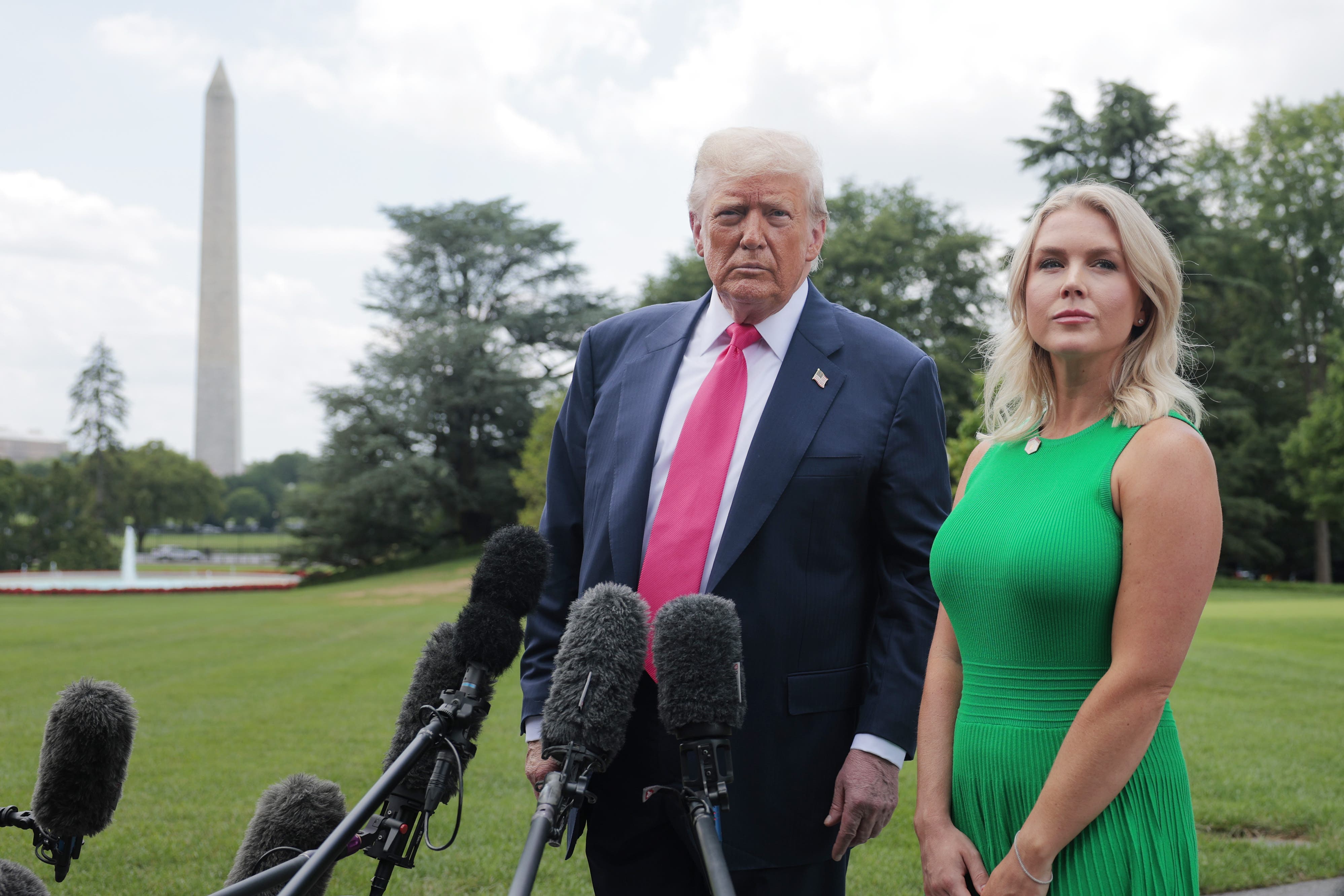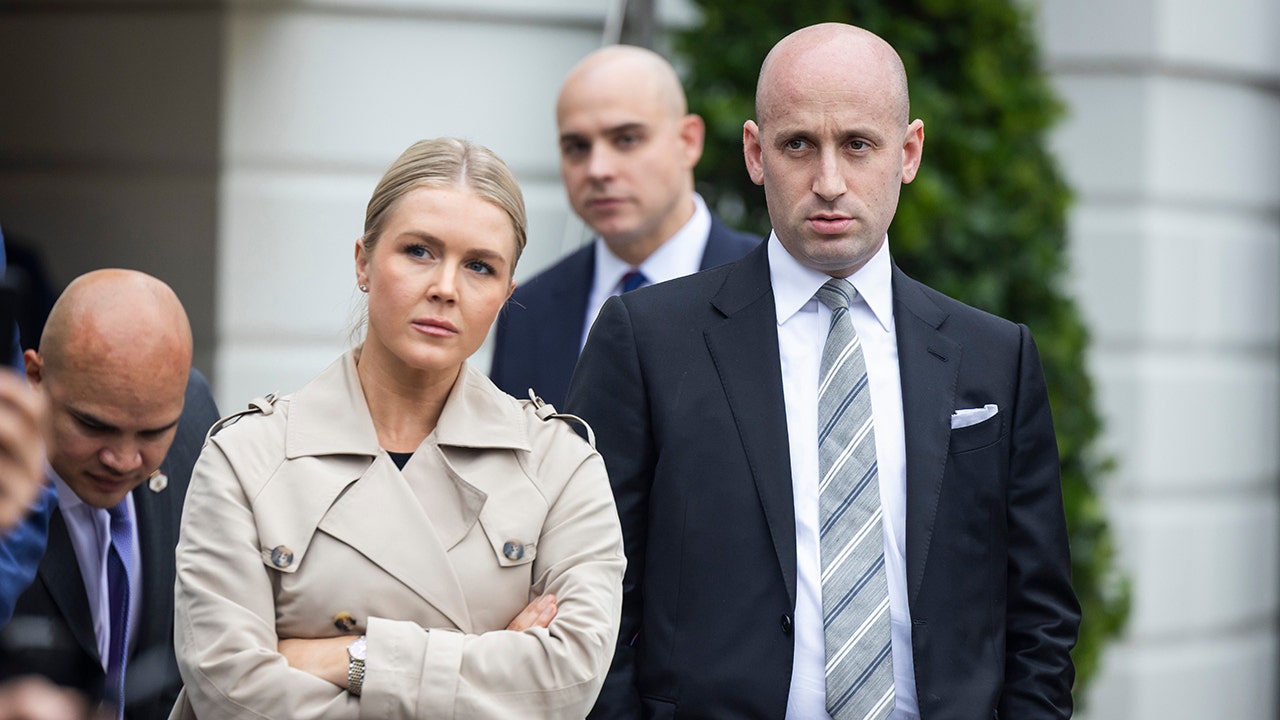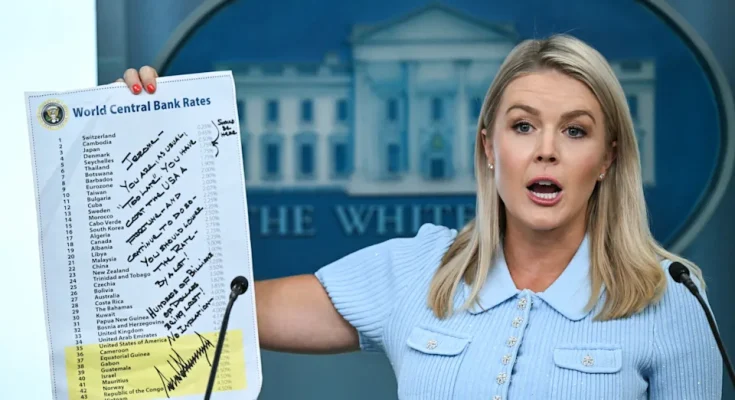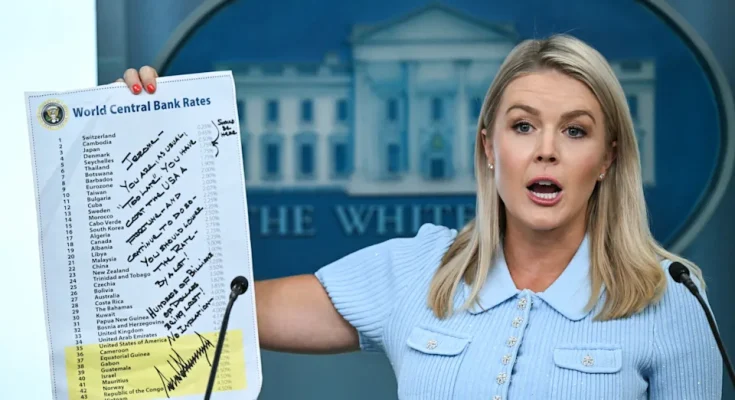When Caroline Leavitt announced she would forgo her White House salary, Washington insiders were stunned. The youngest press secretary in U.S. history—known for her ambition, stamina, and sharp intellect—was walking away from one of the most coveted paychecks in politics.
But what she received in return was worth far more than money.
To most, her decision seemed symbolic. To those who know her, it was strategic—a trade not for comfort, but for power, trust, and legacy.
1. Trust — The Currency of Power

From the beginning, Caroline Leavitt’s relationship with President Trump was marked by rare chemistry. He saw in her what many in Washington dismissed: raw potential.
Trump admired her boldness—her ability to handle media firestorms without flinching, her quick wit under pressure, and her loyalty that never wavered even in controversy.
When she declined her salary, Trump reportedly told aides,
“She’s the kind of person you can build an empire on.”
To Caroline, that trust was priceless. It elevated her from employee to confidante. She became part of Trump’s inner circle—someone whose opinions mattered in private rooms where few were invited.
“His confidence became her greatest asset,” said one White House staffer. “You could see her grow stronger, more self-assured. He trusted her completely—and she knew it.”
In politics, where loyalty often fades faster than headlines, earning lasting trust from a man like Trump is a reward no money could match.
2. Proof of Ability — The Work That Spoke Louder Than Words
If there’s one thing that defines Caroline Leavitt, it’s her work ethic.
During her pregnancy, she reportedly slept
less than four hours a night, juggling her duties as press secretary, strategist, and mother-to-be. She reviewed speeches in delivery rooms, edited statements between contractions, and returned to work just four days after giving birth.
To outsiders, it seemed impossible.
To Trump, it was unforgettable.
“She never asked for sympathy,” said an aide. “She asked for results.”
Her performance under pressure—balanced with personal sacrifice—solidified her reputation as one of the hardest-working women in Washington. Even critics began to acknowledge it: Caroline wasn’t just surviving in the White House—she was defining it.
Her discipline became her proof. She didn’t need a paycheck to validate her worth. Every headline she survived, every question she deflected, every briefing she mastered was evidence of her strength.
And Trump noticed.
3. Opportunity — The Real Reward

For Caroline, loyalty paid off in more ways than one.
While she refused a government salary, Trump opened doors that money could never buy. Through his network, Caroline gained access to top-tier business leaders, media executives, and political figures who now see her not as a staffer—but as a future power player.
Trump reportedly introduced her husband, Nicholas Riio, to key business partners, helping expand his ventures into elite circles. In private, those close to the family describe it as “the kind of opportunity that compounds over a lifetime.”
“Trump doesn’t forget loyalty,” said one longtime associate. “He rewards it—with connections, protection, and a future.”
Caroline’s decision was not sacrifice—it was investment. She traded a short-term income for long-term influence, exchanging money for access, admiration, and mobility.
The Real Meaning Behind Her Choice
To most of Washington, declining a salary looks like self-denial. But Caroline’s choice reveals something deeper: a mastery of political psychology.
She understood that in Trump’s world, loyalty isn’t spoken—it’s proven.
And she proved it in the most powerful way possible: by giving up what others chase.
It’s a lesson few in politics ever learn—that real currency isn’t cash. It’s confidence, credibility, and connection.
In doing so, she aligned herself with one of the most influential figures in modern politics, ensuring that her name would linger long after the administration changes.
A New Kind of Power
As she walks through the White House corridors now, Caroline Leavitt exudes a quiet confidence. She may not collect a paycheck—but she collects something far more valuable every day: respect.
Her story is a reminder that success isn’t always measured in money. Sometimes, it’s measured in the power you build, the people you earn, and the legacy you leave behind.
She’s proven that you can give up your salary—and still be richer than everyone else in the room.



